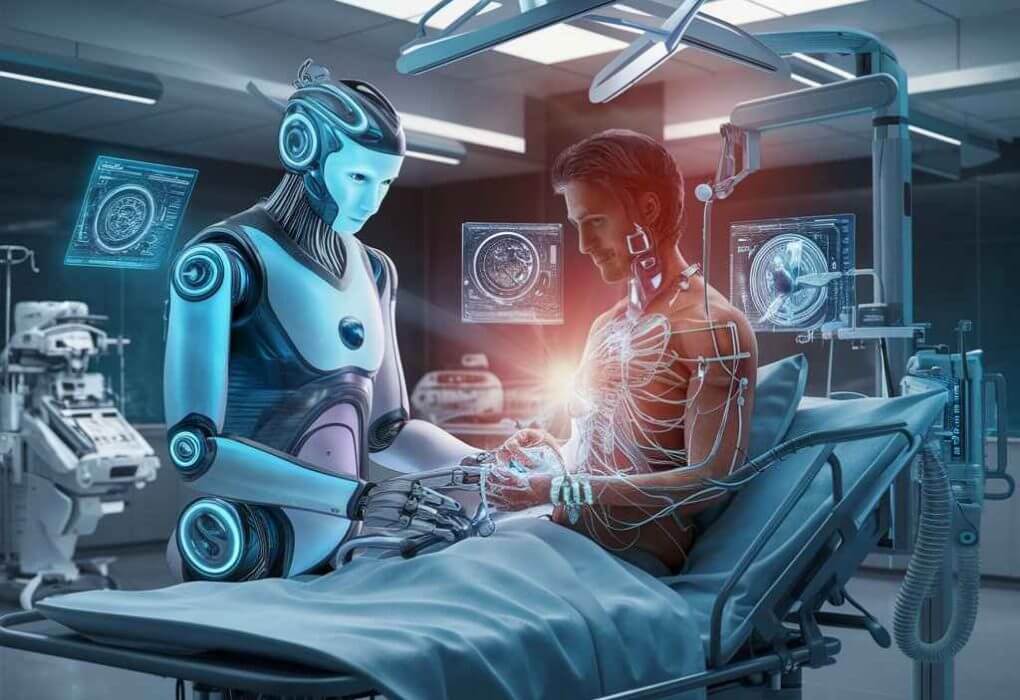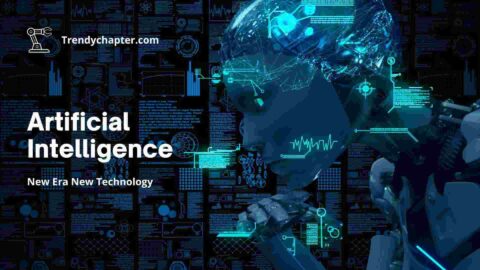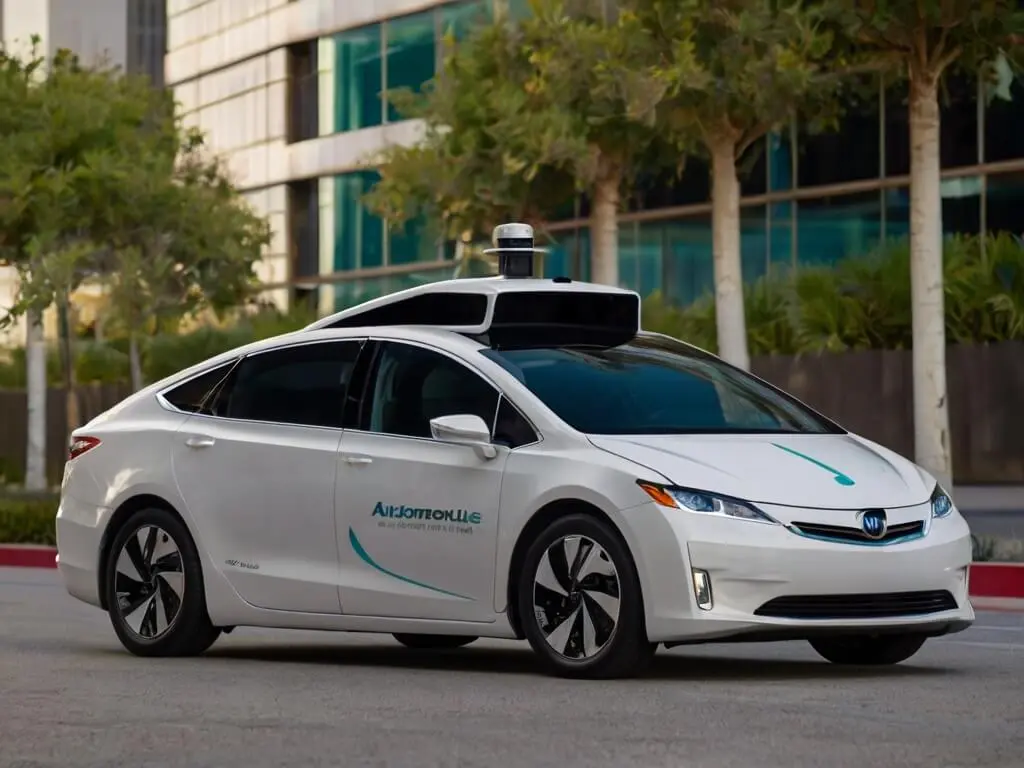AI in future of ai in healthcare represents a new generation in healthcare that has enhanced diagnostic precision, treatment impacts, and patient care. It helps the clinicians to work through complex physiological data in order to improve performance of diagnosis. This novelty signals a major turn in the health care and their intentions were to improve the workflow and outputs.
Diagnostics and Treatment Prognosis
medical imaging and there is no match for the potential of future
AI in
health care algorithms. Besides, young people also contribute the ideas that can be useful for other specialists in particular; moreover, they find patterns that the human scientists often fail to notice. Fourthly, it assists with creating individual therapies based on the medical history or several other conditions.
Personalized Medicine
There are important opportunities of applying
AI in precision medicine where it can improve the quality of the process of putting together different pieces of information about the patient genetic make-up, medical history and lifestyle to achieve optimal therapeutic interventions. The above presentation can increase outcomes to the treatments and lower the rate of unfavorable effects, thus having a positive impact on care.
Drug Discovery
The existing method of drug discovery is lengthy and very expensive.
AI is touted for its ability to rapidly perform target identification from data and predict biological outcomes.
Virtual Health Assistants
Now AI-driven virtual health assistants are a part of the healthcare process where people can receive individual advice, receive reminders about the intake of medications, and track their symptoms. Some of these assistants are always on call and help in improving patient compliance, hence improving overall patient care.
Challenges and Limitations
Thus, existing opportunities are numerous, but difficulties persist.
Data Privacy and Security
Patient data which form the basis for
AI carries a lot of risks regarding privacy and security since the amount of data collected is so huge. Protection of data is very important to retain patient confidence and to conform to industry standards in the provision of health care services.
Ethical Considerations
In some cases, these
AI algorithms replicate stereotype similar to what is practiced in the raw data set; this only bends medical results sorry for saying this. Algorithm explainability must be preserved, and various data representation is required to prevent prejudicial healthcare outcomes.
Modularity Integration with existing systems/Medical Informatics Software/Mobile/Platform Compatibility
When applying
AI in healthcare, one has to play around it since some healthcare organisations’ IT systems are probably outdated, and the healthcare personnel may not be ready to adapt to change. These barriers demand new infrastructure, training, and continued, active change management in order to see
AI as simply another tool, smoothly folded into the organization’s processes.
AI Developmental Trends and Healthcare
Improved diagnostic functions
AI will also help improve the diagnostics of diseases and a variety of other related situations including early diseases. Techniques like
AI can help the radiology departments in displaying images in real-time in order to assist the radiologists in understanding some of the most difficult diagnosis in the healthcare system future of AI in healthcare.
Predictive Analytics
Predictive analytics can be used to tell physicians how a patient is likely to be and which cases require attention most urgently. When it comes to datasets,
AI can pinpoing trends that would enable the system to intervene early enough, saving many patients.
Development in the Field of Precision Medicine
It means that utilizing both artificial intelligence and genetic data, it will be possible to deliver highly customized care. Teaching
AI to identify and distinguish between gene mutations and molecular characteristics can allow improving therapies and eliminating side effects.
AI-powered Robotic Surgery
By using
AI in the surgical process,
AI systems are increasing the accuracy of surgery, decreasing recovery time and minimizing post operative complications.
AI and robotics specifically assist medical gurus in the performance of complicated operations and raises the bar in operations.
Reflection on Healthcare Practice
AI will change the paradigms for roles in healthcare and supercharge expertise while improving the ability of healthcare professionals to focus on tasks that were previously beyond their capabilities.
Augmenting Human Expertise
It is performing decision support and predictive analytics that would save time that doctors working on them take, allowing more time to spend on patients.
Role transformation implies the assessment of shared obligations as well as duties within organizations since the sampled concepts present different views regarding the specifically changing roles and responsibilities.
Since the tendency of using
AI in healthcare practice indicates the delegation of routine activities, healthcare specialists will switch to performing such activities as analysis of results and supervision of
AI systems. They will affirm
AI algorithms and raise awareness of patients with the AI-based treatments; getting new experience in AI-related fields.
Lowering Health Care Cost
Remote healthcaredispatcher services enabled by Artificial Intelligence give patients the ability to seek medical treatment regardless of the physical location. These platforms are most beneficial for minority groups so that quality healthcare does not have to be done in person.
Remote Monitoring and Telemedicine
Wearable sensors and AI-enabled remote monitoring devices allow continuous health tracking. These devices monitor vital signs and detect abnormalities, alerting healthcare providers to intervene when necessary.
Regulatory Framework and Adoption
The future of AI in healthcare depends on regulatory frameworks that ensure patient safety and ethical use.
Regulatory Challenges and Guidelines
Clear regulatory guidelines are essential for the safe and ethical deployment of AI in healthcare. These guidelines must address data privacy, algorithm transparency, and the accountability of AI systems.
Adoption Rates Across Healthcare Systems
AI adoption varies across healthcare systems, influenced by factors like infrastructure, funding, and regulatory environments. While some healthcare organizations have integrated AI into their workflows, others face barriers such as resource limitations or concerns about liability.
Future Challenges and Opportunities
To unlock AI’s full potential in healthcare, stakeholders must overcome technological challenges and prioritize equity.
Overcoming Technological Barriers
Interoperability, data standardization, and algorithmic biases are key challenges that must be addressed. Healthcare organizations need to invest in data governance and algorithm validation to ensure that AI systems are reliable and fair.
Ensuring Equity and Accessibility
It’s important to ensure that AI technologies are accessible to all patients, regardless of socioeconomic status or geographic location. Healthcare organizations must address disparities in access to AI-powered healthcare solutions, ensuring equitable healthcare outcomes for all.
Conclusion
AI’s future in healthcare holds great promise to transform patient care, improve clinical outcomes, and enhance healthcare efficiency. By addressing challenges like data privacy, ethical considerations, and regulatory frameworks, the healthcare industry can fully harness AI’s potential, leading to better health outcomes for patients globally.






